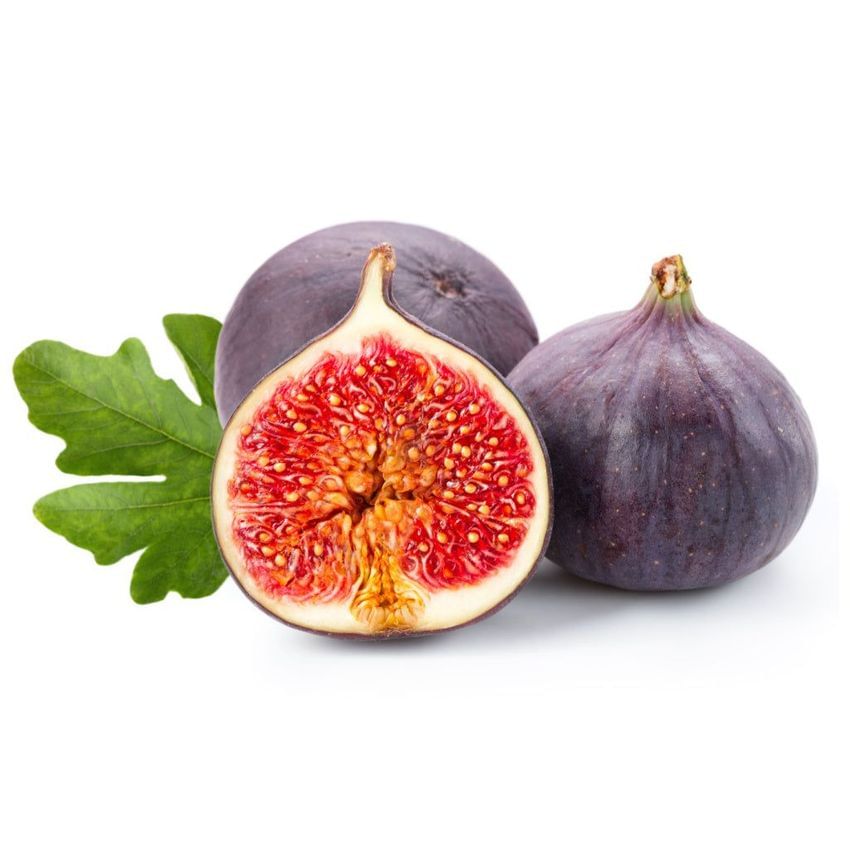Figs, celebrated for their sweet and distinctive flavor, have been valued for centuries due to their nutritional benefits. Beyond their delightful taste, figs are a nutrient powerhouse, particularly rich in fiber. Fiber is crucial for overall health, especially digestive health, and figs are among nature’s richest sources of this essential nutrient.
1. High Fiber Content: Essential for Digestive Health
Figs are abundant in both soluble and insoluble fiber, making them one of the finest natural sources of dietary fiber.
- Soluble fiber in figs helps slow digestion, enhancing nutrient absorption and maintaining steady blood sugar levels.
- Insoluble fiber adds bulk to stool, preventing constipation and promoting regular bowel movements.
A single serving of dried figs (about four to five figs) provides up to 5 grams of fiber, significantly contributing to the daily recommended fiber intake.
“Incorporating figs into your diet can enhance digestion and promote regularity.”

2. Figs and Weight Management
Fiber-rich foods like figs are excellent for weight management. Their high fiber content helps you feel fuller longer, reducing overall calorie intake throughout the day. Figs are a great snack, satisfying sweet cravings without added sugars or unhealthy fats.
How Figs Aid Weight Management:
- Satiety: Fiber adds bulk to your meals, helping you feel satisfied.
- Low in Calories: Figs are naturally low in calories but rich in nutrients, making them a guilt-free snack.
“By keeping you full, figs can support your weight loss or maintenance goals.”
3. Blood Sugar Regulation
Soluble fiber in figs helps regulate blood sugar levels by slowing sugar absorption into the bloodstream, preventing sharp spikes and crashes. This is particularly important for people with diabetes or those managing their blood sugar levels.
Fiber’s Impact on Blood Sugar:
- Slow sugar absorption: Soluble fiber in figs helps manage how quickly sugar enters the blood.
- Improves insulin sensitivity: A diet rich in fiber has been linked to better insulin function, aiding in blood sugar regulation.
“Consuming figs in moderation can help manage blood sugar levels and reduce the risk of type 2 diabetes.”
4. Figs Promote Heart Health
Fiber is vital for heart health, and figs are an excellent way to incorporate fiber into your diet. Soluble fiber helps lower LDL cholesterol (bad cholesterol) by binding with it in the digestive tract and removing it from the body.
How Figs Benefit Heart Health:
- Lowers cholesterol: Soluble fiber in figs helps reduce cholesterol levels, crucial for heart health.
- Rich in potassium: Figs are also high in potassium, which helps control blood pressure and maintain heart function.
“By lowering bad cholesterol and blood pressure, figs contribute to overall cardiovascular health.”

5. Rich in Antioxidants and Other Nutrients
Beyond fiber, figs are loaded with antioxidants, vitamins, and minerals offering numerous health benefits.
- Antioxidants: Figs contain polyphenols, which combat free radicals and reduce oxidative stress, helping prevent chronic diseases like heart disease and cancer.
- Calcium: Figs are a great source of calcium, supporting bone health.
- Iron and Magnesium: These minerals improve energy levels and support muscle function.
“Figs not only boost your fiber intake but also deliver powerful antioxidants and essential nutrients for overall wellness.”
6. How to Incorporate Figs into Your Diet
Figs are incredibly versatile and can be enjoyed in various ways:
- Fresh figs: Perfect as a snack or added to salads and desserts.
- Dried figs: A portable, long-lasting snack that can be added to trail mixes or eaten on their own.
- Fig smoothies: Blend figs into your smoothies for natural sweetness and a fiber boost.
- Baked goods: Add figs to muffins or breads for extra nutrition and natural sweetness.
A Quick Fig Recipe Idea:
For a nutritious breakfast, try overnight oats with chopped figs, almonds, and a drizzle of honey. This fiber-packed meal will kickstart your day with long-lasting energy and keep your digestion running smoothly.
“Whether fresh or dried, figs can be enjoyed in numerous delicious and healthy ways.”
7. Potential Side Effects and Considerations
While figs are highly beneficial, it’s important to consume them in moderation. Eating too many figs can lead to digestive discomfort, such as gas or bloating, due to their high fiber content. Dried figs are also high in natural sugars, so it’s best to balance your intake, especially if you’re monitoring blood sugar levels.
Moderation is Key:
- Stick to recommended portion sizes (3-4 dried figs or 2-3 fresh figs) to avoid excessive calorie and sugar intake.
- Drink plenty of water when consuming fiber-rich foods like figs to help the fiber move smoothly through your digestive system.
Conclusion:
Figs are one of the best natural sources of fiber, providing multiple benefits for digestive health, heart health, weight management, and more. Whether fresh or dried, figs are a delicious and nutritious addition to any diet. By incorporating figs into your meals and snacks, you can boost your fiber intake, improve digestion, and enjoy a range of health benefits.
